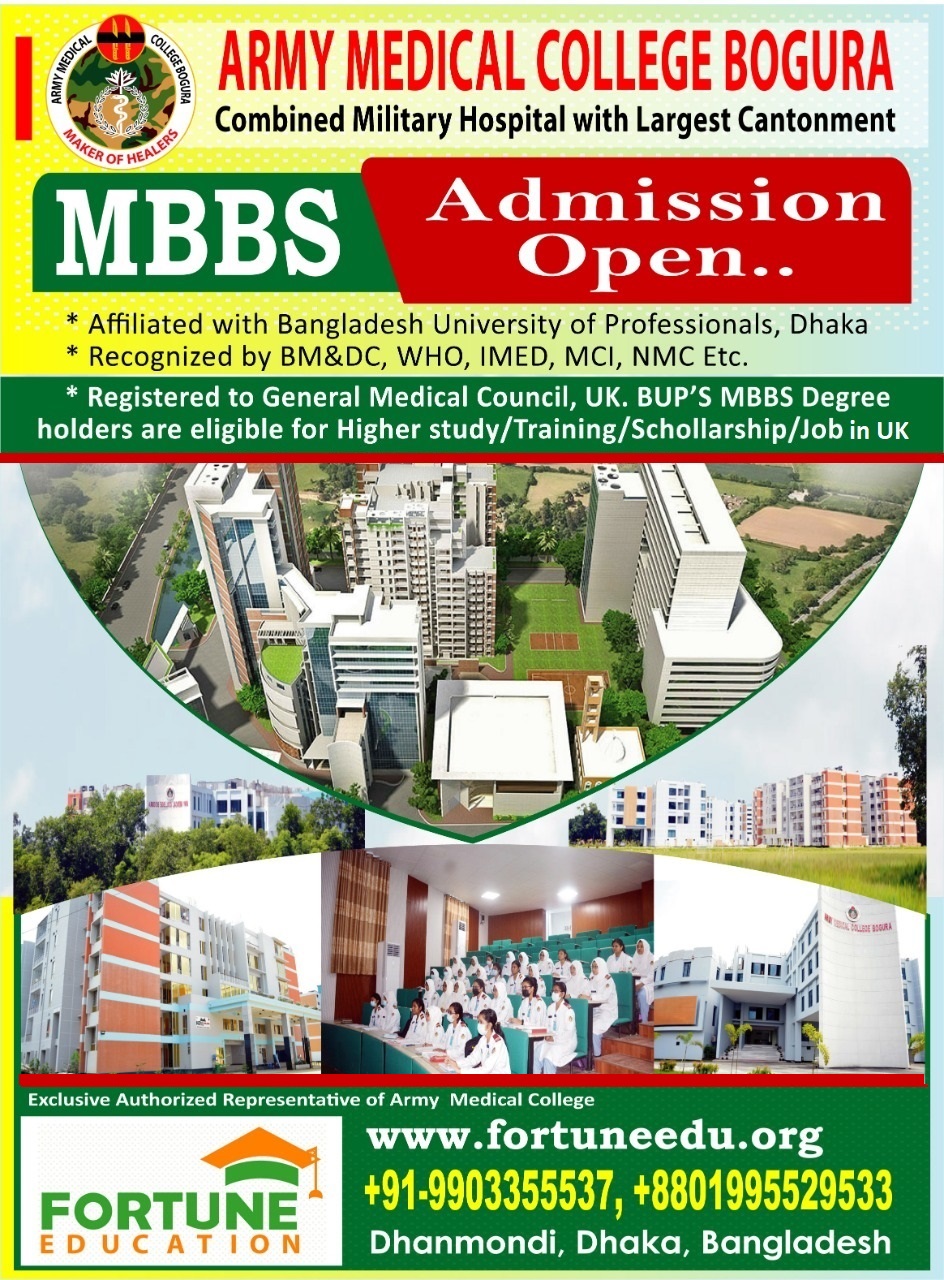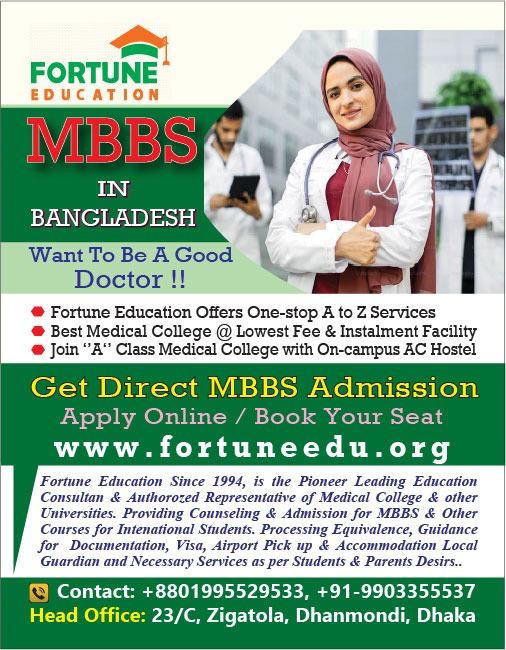Studying MBBS (Bachelor of Medicine and Bachelor of Surgery) in the Philippines has become a popular option for international students, particularly from countries like India. Here are some key aspects of pursuing MBBS in the Philippines:
MBBS in Philippines for International Students
Quality of Education
US-Based Curriculum: Medical education in the Philippines is based on the American system, ensuring a comprehensive and advanced curriculum.
English Medium: The mode of instruction is English, making it easier for international students.
Hands-On Clinical Training: Students receive practical training early in their education.
Eligibility and Admission Process
Academic Requirements: Applicants typically need to have completed 10+2 or equivalent, with subjects in science (Physics, Chemistry, Biology).
Entrance Exams: Some universities require the National Medical Admission Test (NMAT) for admission.
Application Procedure: Students must apply directly to the universities or through authorized agents.
Duration and Structure
BS+MD Program: The course usually involves a 1.5 to 2-year Bachelor of Science (BS) program followed by a 4-year Doctor of Medicine (MD) program.
Internship: The MD program often includes a year of internship.
Cost
Tuition Fees: Relatively affordable compared to many Western countries, but can vary between universities.
Living Expenses: Reasonable living costs, but depends on the city and lifestyle.
Recognition and Opportunities
Global Recognition: Many medical colleges are recognized by international bodies like the WHO.
USMLE Preparation: The curriculum supports preparation for the United States Medical Licensing Examination (USMLE), beneficial for those looking to practice in the U.S.
Challenges and Considerations
Cultural Adjustment: Adapting to a new culture can be challenging.
Quality Variation: The quality of medical education can vary across institutions.
Post-Graduation Licensing: Graduates need to pass the licensing exam in their home country or where they wish to practice.
MBBS in the Philippines offers a blend of quality education, affordability, and international recognition. However, prospective students should research and choose institutions carefully, considering their accreditation and reputation. It’s also essential to prepare for cultural adjustments and understand the requirements for post-graduation practice.
List of Medical Colleges in Philippines
The Philippines hosts several reputable medical colleges that attract international students, especially for programs like MBBS (Bachelor of Medicine and Bachelor of Surgery). Here’s a list of some of the well-known medical colleges in the Philippines:
University of the Philippines College of Medicine – Located in Manila, this is one of the top medical schools in the country, known for its research and teaching standards.
University of Santo Tomas Faculty of Medicine and Surgery – Established in 1611, it’s one of the oldest medical schools and is highly respected in the Philippines.
Far Eastern University Nicanor Reyes Medical Foundation – Located in Quezon City, it’s known for its modern facilities and comprehensive medical programs.
Ateneo School of Medicine and Public Health – A Jesuit institution in Manila, known for integrating clinical training with a Master’s degree in Business Administration (MBA).
Cebu Institute of Medicine – Located in Cebu City, this institute is known for its strong performance in the Philippine Medical Board Exams.
Davao Medical School Foundation – Situated in Davao City, this school is recognized for its community-oriented medical education.
West Visayas State University – College of Medicine – Known for its community health programs and rural health training.
Saint Louis University International School of Medicine – Located in Baguio City, it offers innovative medical education with modern facilities.
Southwestern University Matias H. Aznar Memorial College of Medicine – Based in Cebu City, it’s known for its affordable tuition and diverse student body.
University of Perpetual Help System DALTA – Offers a US-based curriculum and is located in Las Piñas, Metro Manila.
These colleges are known for their quality of education, modern facilities, and a curriculum that often aligns with international standards. International students considering studying MBBS in the Philippines should research each college’s specific admission criteria, fee structure, and the recognition of the degree in their home country or where they wish to practice.
MBBS Admission Criteria
Admission criteria for MBBS (Bachelor of Medicine and Bachelor of Surgery) programs can vary depending on the country and the specific medical school. However, there are some common requirements and steps that most institutions follow. Here’s a general overview of the typical admission criteria for MBBS programs:
Academic Qualifications
High School Completion: Candidates must have completed 10+2 or equivalent high school education.
Science Background: Applicants should have a strong background in sciences, especially in subjects like Biology, Chemistry, and Physics.
Minimum Grade Requirements: There’s often a minimum grade or percentage requirement in high school, especially in science subjects.
Entrance Exams
Medical Entrance Tests: Many countries and institutions require candidates to pass a medical entrance exam. These can be national level (like NEET in India, MCAT in the U.S.) or specific to the university.
Language Proficiency Tests: For non-native English speakers, English proficiency tests like IELTS or TOEFL might be required, especially in English-speaking countries or where the program is taught in English.
Application Process
Application Form: Candidates must fill out an application form, which may be available online.
Documentation: This typically includes academic transcripts, proof of identity, and sometimes letters of recommendation.
Personal Statement or Essay: Some institutions require a statement of purpose or a personal essay explaining the candidate’s interest in medicine.
Interviews
Personal Interviews: Many medical schools conduct interviews to assess the candidate’s suitability for a career in medicine.
Group Interviews or Group Discussions: Some institutions might have group-based assessments.
Other Criteria
Age Requirements: Some medical schools have a minimum age requirement.
Health and Fitness: Medical fitness certificates may be required, ensuring the candidate is physically and mentally fit for the demands of the program.
Background Check: In some cases, a criminal background check is necessary.
Specific Country or University Requirements
Country-Specific Exams: Some countries have specific exams or criteria. For example, the Philippines requires the NMAT for MBBS admissions.
Visa and Study Permit: International students need to obtain a student visa or permit.
After Acceptance
Tuition Fees and Financial Proof: Students need to arrange for tuition fees and sometimes show proof of financial capability.
Medical Insurance: Often, students are required to have medical insurance coverage.
It’s crucial for prospective students to check the specific requirements of the medical schools they are interested in, as there can be variations in the admission criteria and processes.
MBBS Fees Structure in Philippines
The fee structure for studying MBBS (Bachelor of Medicine and Bachelor of Surgery) in the Philippines varies depending on the medical school and its location. Generally, the cost of medical education in the Philippines is relatively affordable compared to many Western countries. Here’s an overview of the fees structure for MBBS programs in the Philippines:
Tuition Fees
Range of Fees: Tuition fees can range from approximately USD 3,500 to USD 8,000 per year. This range can vary widely based on the institution.
Total Course Cost: Considering a typical 5-6 year MBBS course, the total tuition cost may range from USD 20,000 to USD 48,000.
Other Expenses
Accommodation: The cost of living in the Philippines is reasonable. Monthly accommodation costs can range from USD 150 to USD 300, depending on the city and the type of accommodation.
Food and Living Expenses: Monthly expenses for food and living can be around USD 100 to USD 250.
Books and Supplies: Students should also budget for textbooks and other academic supplies, which can cost around USD 300 to USD 500 annually.
Visa, Health Insurance, and Other Fees: There are additional costs for student visas, health insurance, and university-specific fees (like laboratory fees, library fees, etc.).
Scholarships and Financial Aid
Some universities offer scholarships or financial aid to international students, which can significantly reduce the cost.
Key Points to Consider
Currency Fluctuation: International students should consider currency exchange rates as fees are usually quoted in USD.
Variation Across Universities: Prestigious universities or those located in major cities might have higher fees.
Additional Costs for Licensing Exams: If planning to practice in another country post-graduation, budget for the cost of licensing exams and preparatory courses.
While MBBS programs in the Philippines are more affordable than in many Western countries, students should carefully consider all associated costs, including living expenses and additional fees, when planning their education budget. It’s advisable to contact the specific medical schools for precise and up-to-date fee structures.
Fortune Education
MBBS Admission in Bangladesh and Fortune Education, Dhaka
MBBS admission in Bangladesh, particularly through agencies like Fortune Education in Dhaka, offers an alternative for international students, especially those from nearby countries.
Here’s an overview of the MBBS admission process in Bangladesh and some information about Fortune Education, Dhaka:
MBBS Admission in Bangladesh
Eligibility Criteria:
Academic Requirements: Applicants typically need to have completed their 10+2 education or equivalent, with subjects including Physics, Chemistry, and Biology.
Minimum Grade Requirements: There’s usually a minimum grade or percentage requirement, especially in science subjects.
Medical Entrance Exams: While some universities may accept scores from exams like NEET, others might have their own entrance exams or criteria.
MBBS Application Process
Application Submission: Candidates must fill out and submit an application form, often available online, along with required documents like academic transcripts and proof of identity.
Verification and Selection: The applications are verified, and candidates are selected based on their academic merit and entrance exam scores (if applicable).
Documentation:
Valid Passport and Visa: International students need to have a valid passport and obtain a student visa.
Medical Fitness Certificate: A certificate indicating the candidate’s medical fitness is typically required.
Fortune Education, Dhaka
Role in Admission:
Fortune Education, based in Dhaka, Bangladesh, acts as a consultancy service for students seeking admission in medical colleges, particularly for MBBS programs in Bangladesh.
Services Offered:
They assist with the application process, providing information on various colleges, their fee structures, and admission procedures.
They may also help with visa processing, accommodation arrangements, and other logistical aspects of studying in Bangladesh.
Reputation and Reliability:
As with any educational consultancy, it’s important to verify the credibility and track record of Fortune Education. Prospective students should research and possibly get feedback from past students who used their services.
Affiliations and Recognitions:
Check if Fortune Education is officially recognized or affiliated with the medical colleges they represent.
Considerations for International Students
Medium of Instruction: Most medical colleges in Bangladesh offer education in English, but it’s important to confirm this.
Cultural and Lifestyle Adjustment: Students should be prepared for cultural differences and adjust to living in a new environment.
Post-Graduation Licensing: Graduates must meet the licensing requirements of the country where they wish to practice after completing their MBBS in Bangladesh.
MBBS in Bangladesh can be a viable option for international students due to its relatively affordable cost and the quality of medical education.
However, it is crucial to thoroughly research and understand the admission process, the credibility of consultancy agencies like Fortune Education, and the recognition of the medical degree in the student’s home country or where they plan to practice.
Best Army Medical Colleges in Bangladesh
Bangladesh has a well-established system of medical education, including several prestigious army medical colleges. These institutions are known for their rigorous training and high standards. Here are some of the best army medical colleges in Bangladesh:
Armed Forces Medical College (AFMC), Dhaka:
Established in 1999, AFMC is one of the leading medical colleges in Bangladesh.
It offers MBBS and postgraduate courses and is affiliated with Bangladesh University of Professionals (BUP).
The college is notable for its modern facilities, experienced faculty, and a strong emphasis on discipline and professional ethics.
Army Medical College, Chittagong:
This college is affiliated with Chittagong University and is known for its comprehensive MBBS program.
It provides excellent practical training opportunities, with a focus on serving the medical needs of armed forces personnel and their families.
Army Medical College Jessore
Affiliated with Rajshahi University, this college is renowned for its academic excellence and state-of-the-art infrastructure.
The curriculum is designed to produce competent medical professionals with a commitment to serving in military and civilian settings.
Army Medical College Comilla
This institution offers a well-structured MBBS program and is affiliated with Chittagong University.
The college boasts modern facilities and a faculty comprising experienced medical professionals.
Army Medical College Bogra
Known for its rigorous academic program, this college is affiliated with Rajshahi University.
The institution emphasizes research and practical clinical training.
Army Medical College Rangpur
This college offers a comprehensive medical education and is affiliated with Rajshahi University.
It is equipped with modern educational facilities and emphasizes on developing well-rounded medical professionals.
Key Features of Army Medical Colleges in Bangladesh:
Admission Criteria: Admission is highly competitive, often requiring excellent academic records and performance in relevant entrance examinations.
Curriculum: These colleges follow a curriculum that is in line with the latest medical education standards, often with a focus on military medicine.
Training and Facilities: Students have access to well-equipped laboratories, libraries, and clinical training in affiliated military hospitals.
Discipline and Professionalism: As military institutions, they place a strong emphasis on discipline, ethics, and professionalism.
Prospective students interested in joining these institutions should research each college’s specific admission requirements, fee structure, and course details. Additionally, it’s important to understand the commitment involved in studying at a military medical college, including any service requirements after graduation.





